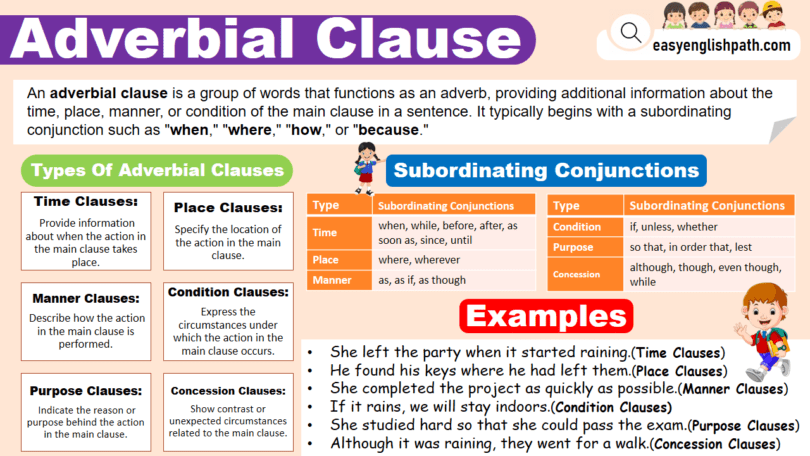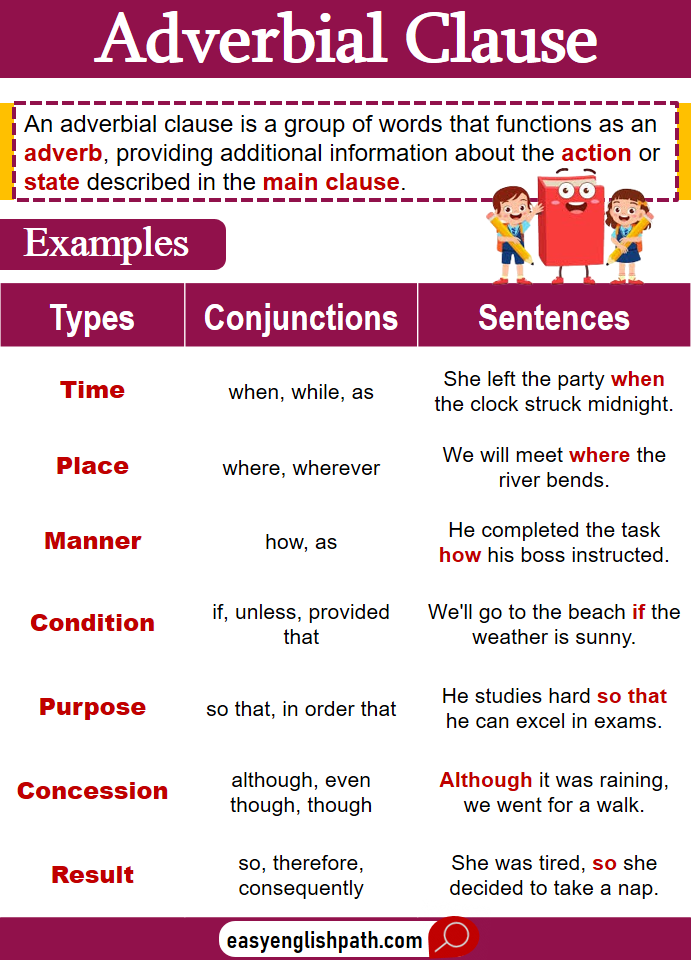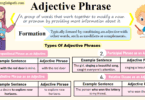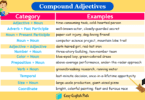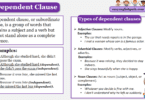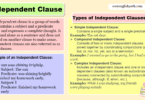Adverbial clauses are parts of sentences that give more information about when, where, why, how, or under what conditions something happens. They often start with words like because, if, when, although, or while. Using adverbial clauses helps us share ideas and actions more clearly. For example, I will call you when I get home. Learning to use them well is important for clear communication in English.
Adverbial Clause Definition:
An adverbial clause is a group of words that acts like an adverb in a sentence. It gives more information about when, where, why, how, or under what conditions something happens. Adverbial clauses usually start with words like because, if, when, although, or while.
- I will call you when I get home.
- She sings because she loves music.
Types of Adverbial Clause:
- Time clauses
- Place clauses
- Manner clauses
- Purpose clauses
- Condition clauses
- Contrast clauses
- Cause clauses
- Concession clauses
- Comparison clauses
♦ Time Clauses:
A time clause is used to tells us when something happens. It often begins with words like when, while, before, after, as soon as, or until.
- When I finish my homework, I will play outside.
- I always eat breakfast before I go to school.
♦ Place Clauses:
Place clauses are used to describe the location or position where an action happens. They often begin with words like where, wherever, or the place where.
- Where he lives, there are many tall trees.
- We will meet at the park, where we always play.
- The treasure is hidden in a cave, where no one has been before.
♦ Manner Clauses:
Manner clauses describe how an action is done. They often begin with words like like, as,’ or as if.
- He sings like a bird.
- She danced at the party as if nobody was watching.
- The children played the game as their teacher instructed.
♦ Purpose Clauses:
Purpose clauses are used to tell us why something is done. They often start with words like so that, so that, or to.
- She studied hard so that she could pass the exam.
- He went to the store to buy some groceries.
- I turned off the lights early so that I could go to bed.
♦ Condition Clauses:
Condition clauses are used to talk about situations that depend on certain conditions being met. These clauses often start with words like if or unless.
- If it rains, we will stay indoors.
- I’ll go to the park unless it’s too hot.
- You can play outside, as long as you finish your homework first.
♦ Contrast Clauses:
Contrast clauses are used to show a difference or opposite idea. They often use words like but, although, or while.
- She is happy, but he is sad.
- I like pizza, although my sister prefers pasta.
- He is tall, while his brother is short.
♦ Cause Clauses:
Cause clauses are used to explain the reason or cause behind an action in a sentence. They often begin with words like because, since,’ as, or so that.
- Because it rained, the picnic was canceled.
- I stayed home since I was feeling unwell.
- The car stopped working as it ran out of gas.
♦ Result Clauses:
Result clauses are used to show the consequence or outcome of an action in a sentence.
- He studied hard so that he could pass the exam.
- It was such a hot day that we decided to go swimming.
- The dog barked loudly so the cat ran away that it scared everyone.
♦ Concession Clauses:
Concession clauses show that even though one thing is true, another thing is also true. They often use words like although, though, or even though.
- Although it was raining, we went to the park.
- We played outside, though it was getting dark.
♦ Comparison Clauses:
Comparison clauses are used to show similarities or differences between two things. They often use words like than or as to make comparisons.
- She is bigger than her brother.
- The giraffe is as tall as the tree.
- My phone is smaller than yours.
Adverbial Clause Examples:
- We can go out if it stops raining.
- She smiled wherever she went.
- We’ll eat dinner before the movie starts.
- She spoke softly while others listened.
- Unless you hurry, we’ll be late.
- They’ll visit when they have time.
- We’ll wait until you arrive.
- I’ll call you if I need help.
- I’ll help while you pack your bags.
- They sang loudly wherever they went.
You May Also Like
- Common Grammatical Errors
- Prefix and Suffix in English
- Types of Adverb in English

